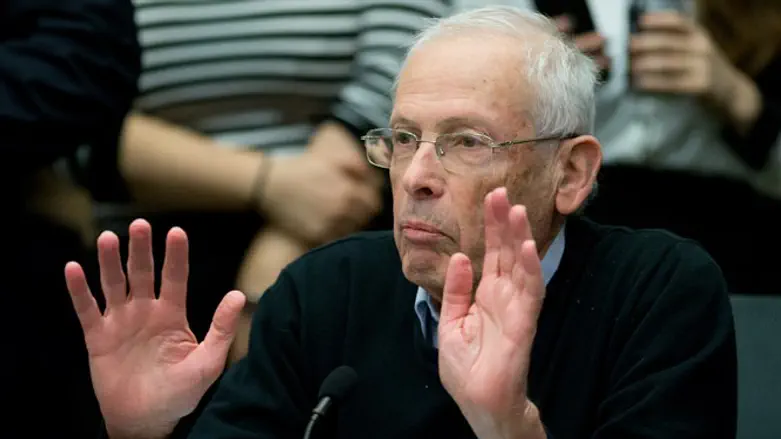
Former Likud MK and minister Benny Begin, the son of former Prime Minister Menachem Begin, criticized his former party Monday, with a thinly-veiled attack on Prime Minister Binyamin Netanyahu.
Speaking with Galei Tzahal Monday morning, the former Science Minister who served as a Likud Knesset Member through this past April, said he would be unable to vote for the Likud, claiming that during Netanyahu’s term at the helm of the party, the Likud had become “haughty and arrogant”.
“In recent years it seems that the leadership of the Likud has gone to great trouble to make it difficult, even impossible, for me to vote for them. There is price for haughty and arrogant behavior.”
The former Likud lawmaker cited the government’s current push to pass the “Camera Law”, which would permit election observers to install cameras in voting booths to prevent fraud. The Likud hopes to pass the bill by Thursday night, allowing the law to go into effect before the election next week.
Critics of the bill have argued that the proposal would create chaos in voting areas, giving too many people the ability to use cameras in polling places. In addition, some jurists have claimed that the move would violate constitutional limitations on the ability of caretaker governments to pass new legislation without the support of the Opposition.
“The government is bound by the constitutional advice” of the Attorney General, said Begin, criticizing the cabinet’s decision Sunday to support the Camera Law despite Attorney General Avichai Mandeblit’s criticism.
“Refusing to abide by the Attorney General’s decision is very serious,” continued Begin.
This is not the first time Begin, 76, has clashed with the Likud, and Prime Minister Binyamin Netanyahu in particular.
In 1999, Begin and two other Likud MKs broke away from the party to form the Herut party, adopting the name of Menachem Begin’s original political faction, a forerunner of the modern Likud.
The three MKs split from the Likud in protest over Netanyahu’s decision to sign the Hebron Agreement and Wye River Memorandum with the Palestinian Authority.
